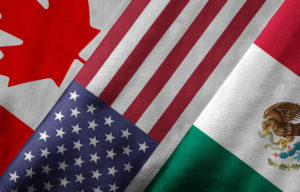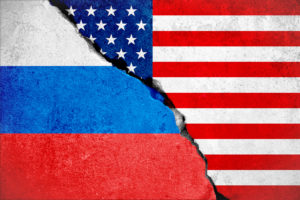News & Insights
OFAC Adds Russian Oligarchs, Senior Government Officials and Russian-Owned Companies to the Specially Designated Nationals List
On April 6th, pursuant to the Countering America’s Adversaries Through Sanctions Act (CAATSA) and various Executive Orders, the U.S. Treasury Department’s Office of Foreign Assets Control (“OFAC”) added 36 parties to the Specially Designated Nationals (“SDN”) List including:
- 7 Russian oligarchs and the 12 companies that they own or control;
- 17 senior Russian government officials; and,
- A state-owned Russian weapons trading company and its subsidiary, a Russian bank.
U.S. persons are prohibited from dealing with these parties without prior OFAC authorization and must terminate their current dealings with them. Non-U.S. persons may also find themselves subject to secondary sanctions for certain dealings involving these entities. These restrictions apply not only to the listed parties, but also to any entity that is 50% or more owned, directly or indirectly, by one or more SDNs. This is the toughest round of sanctions imposed against Russia by the Trump Administration to date and captures certain U.S. companies that are owned or controlled by the Russian sanctions targets. he following provides of detailed summary of OFAC’s recent action. U.S. companies and their foreign affiliates doing business in Russia are urged to stay vigilant as new developments arise.
Background
On January 29, 2018, the Treasury Department submitted several reports to Congress as required by Section 241 of CAATSA which included a list of over 200 senior Russian political figures and oligarchs (with a net worth of at least $1 billion) and entities that are 25% owned by the Russian government (with revenues of at least $2 billion in 2016). The report also provided information on the parties’ corrupt activities, involvement in the Russian economy, the U.S. economic and industry sectors that could be exposed to these parties, and the potential impact of future sanctions against them. OFAC’s most recent additions to the SDN List target several the individuals that were identified in the Section 241 Report. On the same day that the SDN List additions were announced, OFAC also rolled out two General Licenses (General Licenses 12 and 13), which are akin to license exceptions, to minimize some of the disruptions to U.S. companies, partners and allies.
General License 12
General License 12 allows U.S. companies until June 5, 2018 to engage in certain transactions with 12 of the sanctioned companies (as well as any entities in which they hold a 50% or greater interest). Specifically, U.S. persons may until June 5th participate in transactions that are ordinarily incident and necessary to the maintenance or wind down of operations, contracts, or other agreements that were in effect before April 6th. For example—
- U.S. companies may import goods into the United States from the listed parties; however, any outstanding payment for the goods must be deposited in a blocked, interest-bearing account at a U.S. financial institution.
- U.S. companies may receive payments from the listed parties for the purpose of winding down their existing contracts and agreements; however, any payments made by U.S. persons to these entities must be deposited in a blocked, interest-bearing account at a U.S. financial institution.
General License 12 does not allow exports of goods from the United states, the divestiture or transfer of debt, equity or other holdings in, to or for the benefit of the listed companies (or the entities in which they hold a 50% or greater interest). General License 12 does not allow U.S. persons to distribute or otherwise provide funds to these parties. General License 12 also does not apply to Rosoboronexport and RFC Bank, the individuals designated on the SDN on April 6th, or entities owned 50% or more by those parties.
U.S. companies must submit a detailed report to OFAC describing any wind-down activities performed under General License 12 by June 19, 2018.
See https://www.treasury.gov/resource-center/sanctions/Programs/Documents/ukraine_gl12.pdf.
General License 13
General License 13 authorizes transactions and activities through May 7, 2018 that are ordinarily incident and necessary to divest or transfer debt, equity, or other holdings to a non-U.S. person with respect to 3 of the newly added SDNs: the EN+ Group; GAZ Group; and, United Company RUSAL. For example, U.S. companies may facilitate, clear and settle transactions to divest debt, equity or other holdings in these 3 blocked companies to non-U.S. persons. Interestingly, General License 13 only applies to these 3 entities—it does not apply to any parties in which they have a 50% interest or more. General License 13 also does not authorize U.S. persons to sell debt, equity or other holdings to these newly designated SDNs, purchase or invest in debt, equity or other holdings in the SDNs, or facilitate such transactions with the SDNs under the Russia sanctions program. Further, General License 13 does not allow U.S. persons to distribute or otherwise provide funds to these parties. U.S. persons relying on General License 13 must submit a detailed report to OFAC describing each transaction undertaken no later than May 21, 2018.
See https://www.treasury.gov/resource-center/sanctions/Programs/Documents/ukraine_gl13.pdf.
Secondary Sanctions on Non-U.S. Persons
As noted above, non-U.S. persons may face secondary sanctions if they provide support to the newly designated SDNs, such as: acting for or on behalf of the SDNs; materially assisting, sponsoring, or providing financial, material, or technological support for, or goods or services in support of the SDNs; or, engaging in “significant transactions” with the SDNs.
Conclusion
In light of the foregoing, U.S. and non-U.S. companies should analyze their agreements and dealings in Russia, with the listed individuals and companies, and with the entities that are owned or controlled by the listed parties in order to assess the impact of OFAC’s action on their operations. U.S. companies will need to take the necessary steps to wind down existing transactions with the newly added SDNs per the requirements of General Licenses 12 or 13 and update their compliance policies and procedures to address these developments. U.S. companies should continue to stay up-to-date on the U.S. sanctions policy towards Russia and monitor similar sanctions that may be adopted by the European Union or other U.S. allies, as well as Russia’s response to these actions.
For further details, see: https://home.treasury.gov/news/press-releases/sm0338.
If you have any questions pertaining to the recent additions to the SDN List, CAATSA, other U.S. embargoes and economic sanctions programs, or international trade issues, please contact Melissa Proctor at Miller Proctor Law PLLC (melissa@millerproctorlaw.com).
News & Insights

Update on Recent COVID-19 Developments for Importers and Exporters
The table below provides a summary of recent import and export developments announced by the U.S. federal government agencies shown below (as of April 21, 2020) in response to the global pandemic. New information is shown below in red, and additional

Senate Overwhelmingly Passes USMCA, Entry into Force Expected in Mid-2020
On January 16, 2020, the U.S. Senate passed the US-Mexico-Canada Agreement (“USMCA”), which modifies, updates and will replace the North American Free Trade Agreement (“NAFTA”). The Senate vote was 89-10 in favor of the updated trade agreement. President Trump is


